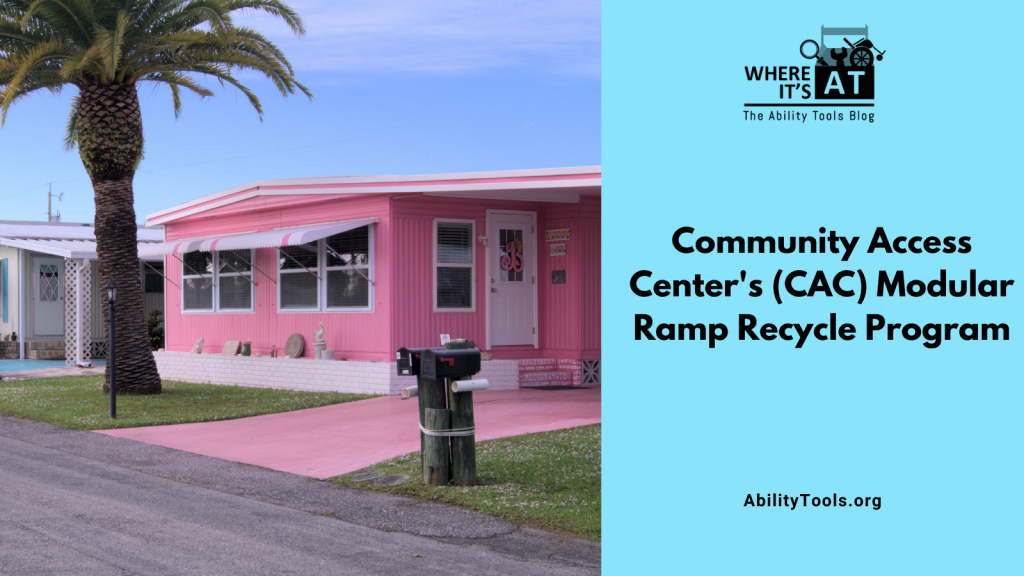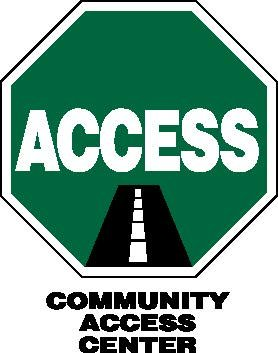
Ability Tools received a letter from Luke Hsieh, the Assistive Technology Advocate for Community Access Center (CAC). Luke shared his recent experiences using a rollator and how it has enhanced his perspective regarding physical accessibility considerations.
For about six months now, I have been plagued by a pinched nerve in my neck; aside from losing the use of my right arm and leg, my balance has also deteriorated drastically. As a result, I have been relying more and more on rollators to walk.
For someone with physical disability, durable medical equipment such as wheelchairs, walkers, and rollators are often considered an extension of one’s body, not unlike glasses can be seen as an extension of one’s eyes, as a matter of fact, I often think of my smartphone as an extension of my brain! If one relies on a wheelchair to move around, then the size of one’s world can be limited by places inaccessible to the wheelchair; in some cases, even one’s own house.
One thing I’ve noticed while using rollators to walk is that whenever there is a threshold, more force has to be applied in order to force it over. And of course, rollators have to be carried up the stairs, which made me think that perhaps I did not give enough credit to our Modular ramp recycle programs.
I work as the Assistive Technology Specialist for the Community Access Center in Riverside, in terms of geography our service area is quite wide, from Corona in the west all the way to Blythe in the east. That also includes quite a few rural areas and reservations. I started my job here in 2009 and for the majority of the time working here, there has been this ramp that we run quite successfully – in terms of numbers, but since I am not a wheelchair user, its actual significance has escaped me.
Now that I have become a rollator user, I frequently wish that my rollator can climb the stairs with me, which brings us back to our Modular ramp recycle program; at the time of writing, Community Access Center has around 150 modular ramps circulating in the field. These modular ramps cost anywhere between $3000.00 and $5000.00 each, these price points can be well beyond the reach of someone on fixed income. To make the matter worse, a plurality of people on fixed income live in modular homes in mobile home parks, those modular homes typically have 3-4 steps with fairly steep inclines. In other words, if you are a wheelchair user living in modular homes, these ramps are a necessity.
To alleviate the above mentioned financial burden, the Community Access Center has purchased almost 150 modular ramps since 2014 for the purpose of loaning them out long term; they are yours to keep for as long as you need them, and when you decide that you no longer need the ramps, we will repossess them before loaning them to the next person that need them free of charge. In the almost ten years this program has been running, we lost only two modular ramps when the consumers passed away; So, our modular ramp recycling program has become a very crucial part of the Riverside community.
If you could benefit from a modular ramp and live in Riverside county, connect with Community Access Center (CAC) and ask about the Modular Ramp Recycle Program.
Community Access Center
Riverside Office (Corporate Offices)
Hours: Monday through Friday – 8:00 a.m. to 4:30 p.m.
6848 Magnolia Ave. Suite 150
Riverside, CA 92506
Telephone: (951) 274-0358
FAX: (951) 274-0833
TTY: (951) 274-0834
Perris / Menifee Office
Hours: Monday through Friday – 8:00 a.m. to 4.:30 p.m.
2055 N Perris Blvd., Suite C1
Perris, CA 92571-2509
Telephone: (951) 263-0708
Palm Desert Office
Hours: Monday through Friday – 8:00 a.m. to 4:30 p.m.
74-390 Hwy 111., Suite A
Palm Desert, CA 92201-2509
Telephone: (760) 568-9301
FAX: (760) 568-9319
TTY: (760) 568-9320
Desert Hot Springs Office
Hours: Monday through Friday – 8:00 a.m. to 4:30 p.m.
14-201 Palm Drive Suite 108
Desert Hot Springs, CA 92240-6880
Telephone: (760) 288-3313
FAX: (760)288-2854





